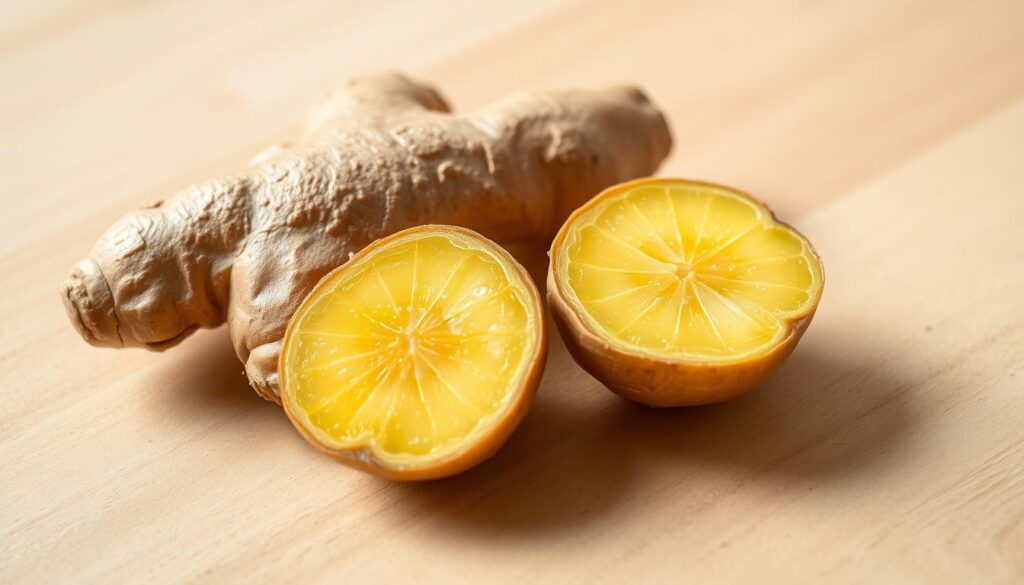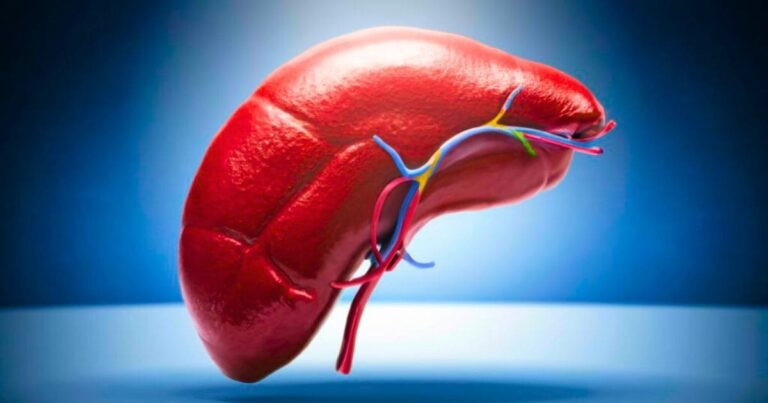Can a simple root truly be a powerhouse of health benefits? For over 3,000 years ginger has been a staple in Asian cuisine and traditional medicine and its popularity continues to grow globally.
Derived from the Zingiber officinale plant ginger has been valued for its medicinal and culinary uses across cultures.
Ginger is more than just a flavorful ingredient it’s a superfood packed with nutritional properties that may help support overall health. As we explore the incredible benefits of ginger you’ll discover why this ancient root remains a vital part of modern health practices.
Key Takeaways
- Ginger has been used for thousands of years in traditional medicine and cuisine.
- It’s a rich source of nutritional properties that support overall health.
- Ginger may help with digestive issues and pain relief.
- This superfood can be incorporated into your daily diet in various forms.
- Ginger’s health benefits are backed by scientific evidence.
- It’s a versatile ingredient that can be used in both sweet and savory dishes.
The Ancient Root with Modern Benefits
Ginger a root with a rich history, has been used for centuries in various cultures for its medicinal and culinary properties. The Zingiber officinale plant from which ginger is derived has its origins in the tropical rainforests of Southern Asia.
Origin and History of Ginger
Ginger has been cultivated for over 5,000 years making it one of the oldest documented medicinal plants. It was highly valued in ancient trade routes with the Romans importing it from the East and paying high prices for this exotic root.

Archaeological evidence suggests that India and China were among the first countries to cultivate ginger extensively.
Ginger in Traditional Medicine
In traditional medicine systems including Ayurveda and Traditional Chinese Medicine ginger has been used to treat various health issues.
It was valued for its warming properties and ability to stimulate circulation often prescribed for cold related illnesses and to improve digestion. The use of ginger in traditional medicine has been documented in ancient medical texts from China India and the Middle East highlighting its health benefits and versatility as a medicinal plant.
Discover the Nutritional Properties of Ginger
Rich in bioactive compounds, ginger has been found to possess remarkable nutritional properties that support overall well-being. The root’s impressive nutritional profile is attributed to its diverse range of compounds, including gingerol, which is responsible for many of its therapeutic effects.
Key Compounds in Ginger
Ginger contains over 400 different chemical compounds, with its most bioactive constituents being the phenolic compounds known as gingerols, shogaols, and paradols. These compounds contribute to ginger’s characteristic flavor and numerous health benefits. Some of the key compounds in ginger include:
- Bioactive compounds that provide antioxidant properties
- Essential minerals such as potassium, copper manganese, and magnesium
- Volatile oils that contribute to its therapeutic properties, particularly for digestive and respiratory systems

Read more: Ginger What happens if we eat it regularly?
Gingerol: The Star Component
Gingerol is the primary bioactive compound in fresh ginger, responsible for much of the root’s characteristic flavor and many of its therapeutic effects.
When ginger is dried or cooked gingerol transforms into shogaol which has different but equally valuable properties. Research has shown that gingerol has powerful anti-inflammatory and antioxidant effects that may contribute to ginger’s ability to help with various health conditions.
Powerful Health Benefits of Ginger
Ginger has been revered for centuries for its medicinal properties, and modern research continues to uncover its impressive health benefits. This ancient root has been used in traditional medicine for various purposes, and its benefits are now being validated by scientific studies.
Digestive Health Support
Ginger’s digestive benefits are well-documented. Studies have shown that it can help increase gastric motility reduce gas formation, and alleviate various forms of digestive discomfort. According to a 2018 review, enzymes in ginger can help break up and expel gas in the intestinal tract, providing relief from discomfort.
Ginger’s digestive benefits make it a valuable resource for those experiencing digestive issues. Its natural properties can help soothe the digestive system promoting overall gut health.
Anti-Inflammatory Properties
The anti-inflammatory properties of ginger are comparable to some non-steroidal anti-inflammatory drugs NSAIDs but without many of the side effects. This makes ginger valuable for conditions like osteoarthritis and rheumatoid arthritis.
A 2015 review concluded that taking ginger by mouth is modestly efficacious and reasonably safe for treating inflammation caused by osteoarthritis.
Ginger’s anti-inflammatory effects are attributed to its gingerol compounds, which have been shown to inhibit certain inflammatory pathways in the body. This can contribute to its wide range of therapeutic effects across multiple body systems.
Immune System Booster
Research indicates that ginger may help strengthen the immune system by enhancing immune response and providing antimicrobial effects against certain pathogens. This makes ginger a potential natural remedy for supporting immune function.
By incorporating ginger into one’s diet, individuals may be able to boost their immune system and reduce the risk of illness.
Pain Relief Capabilities
Ginger has been shown to be effective in reducing various types of pain, including muscle pain after exercise, menstrual pain, and chronic pain conditions. The anti-inflammatory and analgesic effects of ginger’s compounds particularly gingerol contribute to its pain-relieving properties.
Ginger may ease pain through anti-inflammatory and analgesic effects of its gingerol compounds as noted in a review of ginger’s therapeutic effects.
A 2016 review concluded that ginger may specifically help reduce dysmenorrhea pain right before or during a period. This highlights ginger’s potential as a natural pain reliever for various types of pain.
Ginger for Nausea and Digestive Discomfort
The effectiveness of ginger in alleviating nausea and digestive discomfort has been supported by numerous clinical studies. Ginger’s active compounds, particularly gingerols and shogaols play a crucial role in its anti-nausea effects.

Read more: How to improve digestive health
Morning Sickness Relief
Ginger has been shown to be effective in reducing morning sickness during pregnancy. A 2020 review indicated that ginger can help alleviate morning sickness without increasing the risk of pregnancy loss or symptoms like heartburn or fatigue.
Pregnant women can safely consume ginger in doses under 1,500mg daily.
Motion Sickness Prevention
Ginger is also beneficial for preventing motion sickness.
Clinical trials have demonstrated that taking ginger before travel can reduce symptoms more effectively than some over-the-counter medications. The anti nausea effects of ginger work by blocking certain serotonin receptors in the gut and increasing the rate at which the stomach empties.
Post-Chemotherapy Support
Studies involving cancer patients undergoing chemotherapy have shown that ginger supplements can significantly reduce the severity and frequency of treatment-related nausea and vomiting. Doses of 0.5 grams and 1.0 gram were found to be most effective at reducing nausea in cancer patients.
Ginger’s benefits extend beyond nausea relief, helping with general digestive discomfort, bloating and gas by promoting healthy muscle contractions in the digestive system.
As noted in a review gingerols and shogaols work directly on the digestive tract rather than through the central nervous system which explains why ginger doesn’t cause drowsiness like many anti-nausea medications.
Cardiovascular and Metabolic Benefits
Ginger’s impact on cardiovascular health and metabolism is a subject of increasing interest. Research has shown that ginger can play a significant role in maintaining healthy blood sugar levels and cholesterol management both crucial for overall cardiovascular well-being.
Blood Sugar Regulation
Ginger has been found to have a positive effect on blood sugar regulation, which is key to controlling the long-term health effects of Type 2 diabetes. The active compounds in ginger such as gingerol help reduce enzymes that break down carbohydrates thus aiding glucose metabolism.
Studies suggest that regular consumption of ginger may help improve insulin sensitivity and reduce fasting blood sugar levels in people with Type 2 diabetes.
- Ginger inhibits key enzymes involved in carbohydrate metabolism.
- It increases glucose uptake by muscle cells without requiring additional insulin.
Cholesterol Management
Ginger also has a beneficial impact on cholesterol levels. Research indicates that ginger can reduce total cholesterol LDL bad cholesterol, and triglyceride levels while potentially increasing HDL good cholesterol. A study found that people who took ginger pills daily saw decreased levels of triglycerides, total cholesterol, and bad cholesterol after 45 days.
| Cholesterol Type | Effect of Ginger |
|---|---|
| Total Cholesterol | Reduced |
| LDL Bad Cholesterol | Reduced |
| HDL Good Cholesterol | Potentially Increased |
| Triglycerides | Reduced |

Different Forms of Ginger
Ginger’s diverse forms make it accessible for various health concerns and culinary purposes. Whether you’re looking to incorporate ginger into your diet or seeking a natural remedy, understanding the different forms available is essential.
Fresh vs. Dried Ginger
Fresh ginger root offers the highest concentration of gingerol making it ideal for culinary uses and fresh preparations.
In contrast dried ginger contains higher levels of shogaol, which has different but equally valuable properties particularly for inflammatory conditions. A study published in 2019 found that dried ginger had a more concentrated dose of healthy plant compounds and antioxidants.
Ginger Supplements and Extracts
Ginger supplements come in various forms including capsules, tablets, and tinctures with standardized extracts offering consistent doses of active compounds for therapeutic purposes. When choosing ginger supplements it’s essential to consider the specific health benefit sought and whether a standardized dose is needed.
Ginger Tea and Other Preparations
Ginger tea represents one of the most accessible and pleasant ways to consume ginger regularly. Both commercial tea bags and homemade versions offer health benefits. Other preparations like crystallized ginger, ginger shots, and ginger-infused oils each offer unique advantages for different health concerns and consumption preferences.
Adding Ginger to Your Diet
Incorporating ginger into your daily diet can be a simple and delicious way to enhance your overall health. Ginger is a versatile ingredient that can be used in a variety of dishes from savory meals to sweet treats.
Culinary Uses and Recipes
Ginger works well in numerous culinary applications, including stir-fries, curries soups, and baked goods. You can mix it with soy sauce, garlic and olive oil to create a marinade or dressing for salads and stir fries.
Fresh ginger is ideal for dishes that don’t require long cooking times while dried ginger is better suited for baked goods and longer cooking recipes.
- Add freshly grated ginger to morning smoothies for an extra boost.
- Steep sliced ginger in hot water to make a soothing ginger tea.
- Incorporate ginger paste into salad dressings and marinades for added flavor.
Recommended Daily Intake
While there’s no official recommended daily allowance for ginger, research suggests that 1-4 grams of ginger per day is both safe and potentially therapeutic for most adults. The FDA considers ginger root to be generally safe with an approved daily intake recommendation of up to 4 g.
For maximum health benefits, consistency is key. Regular, moderate consumption of ginger appears to be more beneficial than occasional large doses. You can achieve this by incorporating ginger into your daily meals such as adding it to your favorite recipes or making ginger tea a part of your daily routine.
Conclusion
With its rich nutritional value, ginger stands out as a true superfood. The numerous benefits of ginger make it a valuable addition to a healthy diet, offering multiple therapeutic effects that can enhance overall health.
From its powerful anti-inflammatory properties to its ability to ease digestive discomfort ginger provides a range of health benefits.
While generally recognized as safe it’s essential to be aware of potential side effects particularly when taking concentrated ginger supplements. As research continues to uncover new benefits of this ancient root ginger‘s reputation as a powerful medicinal food continues to grow.
Whether used as a culinary spice, a soothing tea, or a targeted supplement, ginger offers a remarkable combination of delicious flavor and therapeutic potential. For those seeking natural approaches to common health concerns, ginger represents one of the most well-researched and effective botanical options.





